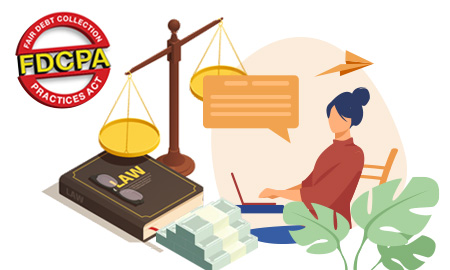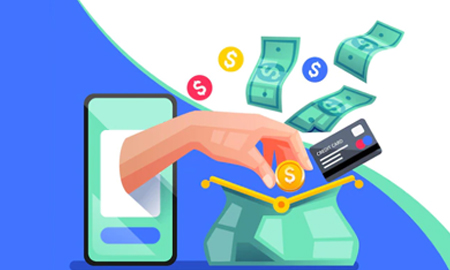Consumers think that empathy in debt collection is an essential aspect. But unfortunately, it’s challenging in the cut-throat world, where the most cold-hearted grasp on credit control is the only option. In reality, debt collection agencies recognize empathy as a vital business skill critical to any debt collection process, particularly during turbulent times. When it comes to debt collection, empathy is at the core of debt collection efforts which understand, anticipate, and help lead to meaningful interactions and concrete returns.
Empathetic business practices must be at the forefront of any operations that strive to be ethical and fair. Empathy is more about the action of understanding, being aware of, being sensitive to, and vicariously experiencing the feelings, thoughts, and experiences of another. However, it takes into theorizing that the process of empathizing develops resilience.
When you can listen and appreciate the other party’s point of view, it helps decrease conflict, and appreciation and success can be reached. Remember, empathy should be embedded into the entire organization. Also, there’s nothing soft about it. It’s a complex skill that should be required from the boardroom to the shop floor. With debt collection, the application of empathy is not about being weak. Instead, empathy is about recognizing your actions’ impact on other individuals, which is an integral part of business skills.
Exhibiting empathy with debt collection
Engagement
Empathy is, by definition, a human endeavor; moreover, empathy in the business world means reaching every human in a personal and caring manner. Adoption of an omnichannel approach to communication and inviting customers to repay what they owe using non-threatening language considerably increases response and collection rates.
In the digital world, consumers feel much happier receiving streamlined communication channels. First, they must be familiar with SMS, Email, or Live Chat. Then, the agents can respond in their own time most conveniently.
Solutions and compromise
In challenging economic times, empathy can be beneficial in terms of providing businesses with the ability to put themselves in the position of the debtor and then work together to find a solution proactively. Collection agencies utilize automated debt collection software to personalize payment arrangements and create solutions. Thereby allowing customers to engage and resolve accounts in ways that work positively for everyone.
Focusing on the bigger picture
The debtor’s payment is overdue; you may wish to retain their business in the future. When you’re fair, communicative, and empathetic, customer service improves, and clients will likely return to your business in the long term. Empathy, active listening, and understanding are the keys to resolving debt. This can be the cornerstone of maintaining long-term, strong client relationships. The market is undergoing a complete transformation, and debt collection practices that don’t exhibit empathy will not find success, nor will they be ethical.
The right benefit
Empathy is one of the best qualities debt collection agencies can acquire in today’s world. As per the Empathy Business, empathetic companies generated 50% more earnings than those ranking at the bottom of the list. Aside from being a lifeline for customers, who may be experiencing a personal crisis, there are also many business benefits of making your collections process more compassionate.
Increased earning potential
Empathetic companies are some of the most profitable. Now, the question is how to maintain profitability if customers cannot pay bills. The principle is pretty simple. You must show people you care, and they will be more inclined to work and reach a solution. In some instances, you may point the customers in the direction of the Citizens Advice Bureau. It’s more about providing details on a charity that can help or even develop alternative payment arrangements.
You must also know that these solutions can be tricky, sometimes failing to earn an instant profit. However, they do help customers get back on the right track. This enables them to stay on top of their bills in the future. Remember, the more vulnerable customers you help, the more you’ll find they get engaged in the collection process.
Better business reputation
In the digital age, information passes like wildfire. Within seconds, people learn everything they need about the business. More people trust online reviews as much as a recommendation. If you receive several negative reviews from unsatisfied customers, it significantly affects your reputation and scares potential clientele. These damaging online critiques can severely harm the bottom line if left unresolved.
Customers compare your company to other providers and ultimately choose the one with the best reputation. On the other end of the spectrum, businesses that take an empathetic approach to the collections process and listen to their customers’ concerns can expect positive reviews to appear online. With life feeling so uncertain for households countrywide, consumers will feel more comfortable signing up with a provider who has a caring ethos and allows them to make payments in a way that works for their current situation if they get into difficulty.
Enhanced customer loyalty rate
Customers say they stay loyal to brands that have friendly agents. Therefore, it’s essential to have an expert team of skilled people in the business who can work on all the collection processes seamlessly. Remember, if the firm needs to be adequately represented or KPIs overshadow the human element of dealing with customers, this will harm customer loyalty. People with a bad taste in their mouths may look for a competitor and switch to them once they’ve paid off their arrears.
Customer service advisors need to be able to put themselves in other people’s shoes without shoes allowing their personal feelings to overshadow their ability to resolve the situation. However, only some individuals naturally have those skills-they require specialist training and lots of experience, which can be hard when finding the recruitment market.
Enhanced thinking process
It can be challenging to find skilled advisors, and encouraging the team to be compassionate is proven to enhance their ability to deal with complex situations. Businesses that take an empathetic approach to handle customers are more agile and outperform non-agile competitors.
When volume continues to surge, it becomes tricker to dedicate enough skilled advisors. Besides, you may find that customers have become frustrated with long wait times on the phone or unsuitable solutions. This can damage the reputation. Outsourcing to collections experts could be a good idea to ensure you have the team you need.
Outsource experts
Data states that half of all advisors emphasize how things become more challenging when it becomes vulnerable to customers due to the impact of the pandemic. In addition, the ongoing crisis has made the types of vulnerability more complex as increasing numbers of people are experiencing financial hardship for various reasons.
We continue to navigate these uncertain times; businesses must ensure they have a well-trained, empathetic team ready to take on a higher volume of calls when it comes to an advisor to solve problems in a way that serves both you and the customer. But unfortunately, you cannot measure success with KPIs and the number of tickets resolved.
Here, you can check that the team is offering helpful solutions and running everything they can, to maintain customer loyalty. One of the best ways to ensure the team sticks to meet customer demand is when outsourcing to a third-party debt collection agency. Besides, these providers are dedicated solely to customer interactions; they have the skilled resources you need to keep the business reputation intact. Better still, by taking away the stress of managing the collections process, you’ll free up some time and focus on other business-critical activities.
Understanding the dimension
Nobody wants to be pressured about their debt. People know when they owe money but don’t want to feel badgered by multiple calls and letters when discussing the debt problem. It only adds to the pressure and drives them to the ground. It’s more about rethinking the journey people must go on and adapting to the channels they prefer to engage in. This also means hitting the phones less and embracing digital communications, and creating a more efficient and practical experience. To some, this still can be a counter-intuitive switch: if there’s any need to get payment, why wouldn’t you push a more direct conversation to drive that outcome?
But here we hit one of the stark realities of the debt collections industry. Besides, poorly trained people following poorly structured, manual processes that wrongly prioritize transaction volume over the customer often compound issues for consumers and reduce the likelihood of securing payments in the process. It often leads to quicker settlements.
You must focus on the customer experience that continues to focus on industry reputation. Digital tools enable us to tackle this head-on. It’s more about creating carefully planned communications, delivered through the channels customers want to use and executed with an empathetic tone.
In doing so, it enables you to automate a significant proportion of customer interactions, freeing the agents up to engage in more impactful interactions with consumers, conversations that take place at the right time in the customer journey and enabling them to add value.
It’s not just limited to theory; it’s based on psychology that one of the clients developed as part of their strategy to approach their customer about debt. It’s based on negotiating techniques. When you open up with which end customers feel more comfortable and adapt the focus and tone of communication to balance empathy with a need for action, a debt still has to be repaid.
Final Wrap
Switching to a more empathetic collection approach is essential for driving real results. The ultimate aim is to help democratize the process. While following a traditional collection model is focused on making outbound calls, it’s more about incentivizing to convert a debt. Here, it’s a lot more effort for a far lower return as far as the agent is concerned.
Automation doesn’t discriminate against low debt value. Instead, it creates a platform that allows account holders to engage with and self-serve their debt repayment, enabling the collector to realize the revenue stream far more efficiently.



